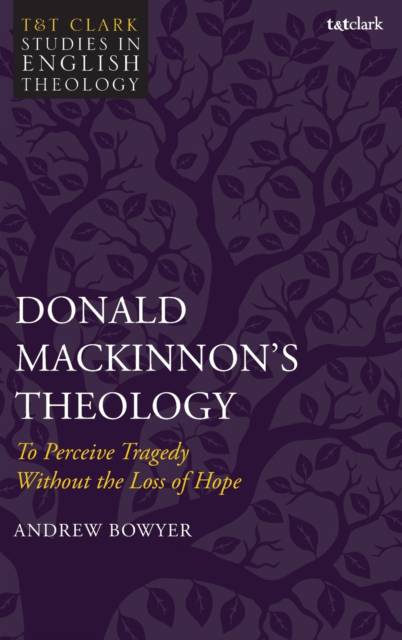
Bedankt voor het vertrouwen het afgelopen jaar! Om jou te bedanken bieden we GRATIS verzending (in België) aan op alles gedurende de hele maand januari.
- Afhalen na 1 uur in een winkel met voorraad
- In januari gratis thuislevering in België
- Ruim aanbod met 7 miljoen producten
Bedankt voor het vertrouwen het afgelopen jaar! Om jou te bedanken bieden we GRATIS verzending (in België) aan op alles gedurende de hele maand januari.
- Afhalen na 1 uur in een winkel met voorraad
- In januari gratis thuislevering in België
- Ruim aanbod met 7 miljoen producten
Zoeken
€ 254,45
+ 508 punten
Omschrijving
Donald MacKinnon (1913-1994) was one of the most influential Anglican theologians in the aftermath of World War Two. His writings reveal him as a restive and unsystematic thinker, yet there is a good case to be made that a series of reoccurring questions - 'obsessions' might better honour the memory of MacKinnon's temperament -appear throughout. These relate to the demands of moral realism, the tensions between the philosophical positions of realism and idealism, and the perennially disruptive presence of Christ.
Andrew Bowyer outlines McKinnon's contribution and context, as well as characterising his work as a form of "therapeutic+? moral philosophy that combines a call for intense self-awareness together with a commitment to realist notions of moral "factuality+?. Bowyer examines the key influences on McKinnon's thought, his focus on Christology, his engagement with literature and literary criticism, as well as his response to Wittgenstein's later philosophy. This volume offers an appreciation of his contribution and a critique of his legacy.
Andrew Bowyer outlines McKinnon's contribution and context, as well as characterising his work as a form of "therapeutic+? moral philosophy that combines a call for intense self-awareness together with a commitment to realist notions of moral "factuality+?. Bowyer examines the key influences on McKinnon's thought, his focus on Christology, his engagement with literature and literary criticism, as well as his response to Wittgenstein's later philosophy. This volume offers an appreciation of his contribution and a critique of his legacy.
Specificaties
Betrokkenen
- Auteur(s):
- Uitgeverij:
Inhoud
- Aantal bladzijden:
- 224
- Taal:
- Engels
- Reeks:
Eigenschappen
- Productcode (EAN):
- 9780567681249
- Verschijningsdatum:
- 22/08/2019
- Uitvoering:
- Hardcover
- Formaat:
- Genaaid
- Afmetingen:
- 157 mm x 236 mm
- Gewicht:
- 498 g

Alleen bij Standaard Boekhandel
+ 508 punten op je klantenkaart van Standaard Boekhandel
Beoordelingen
We publiceren alleen reviews die voldoen aan de voorwaarden voor reviews. Bekijk onze voorwaarden voor reviews.









